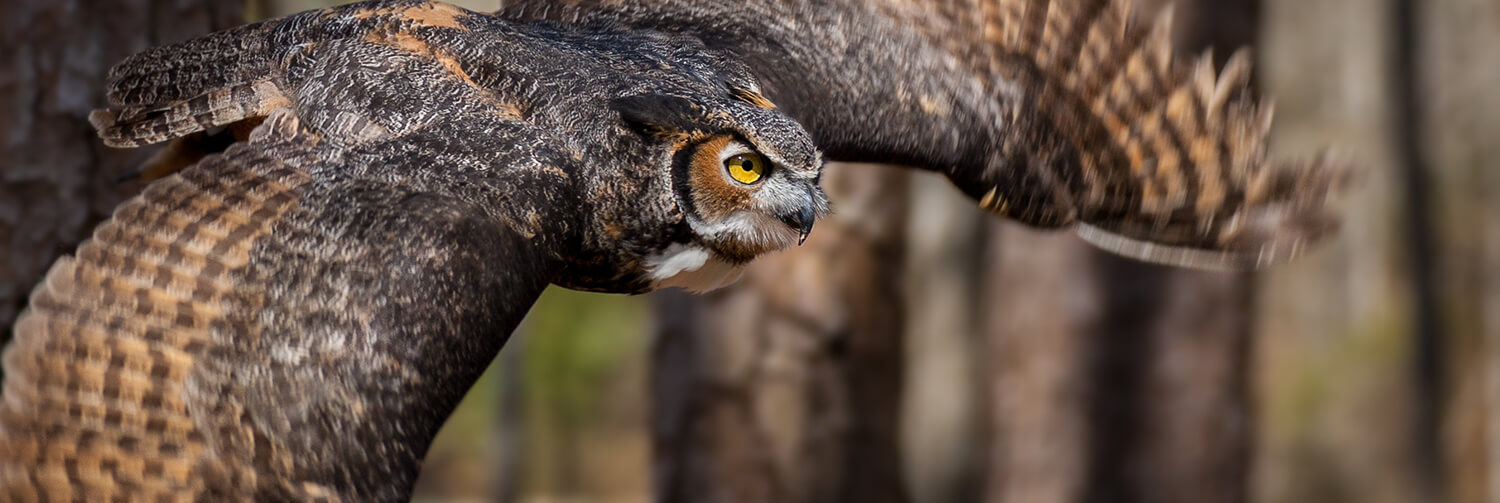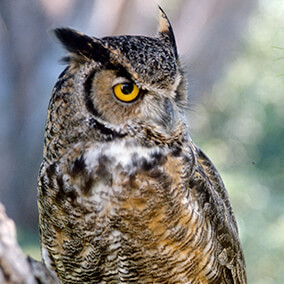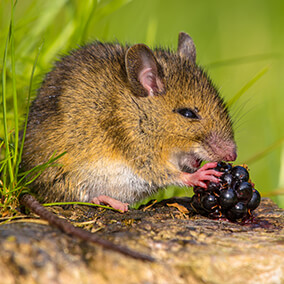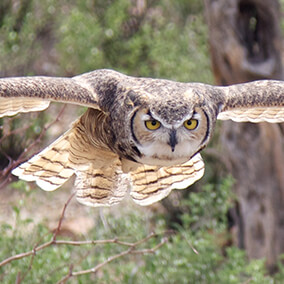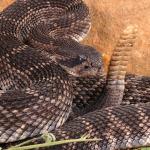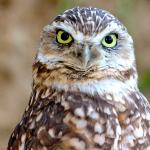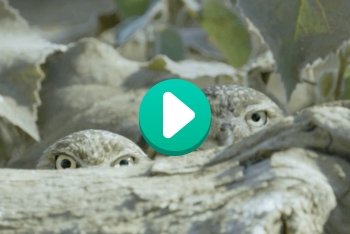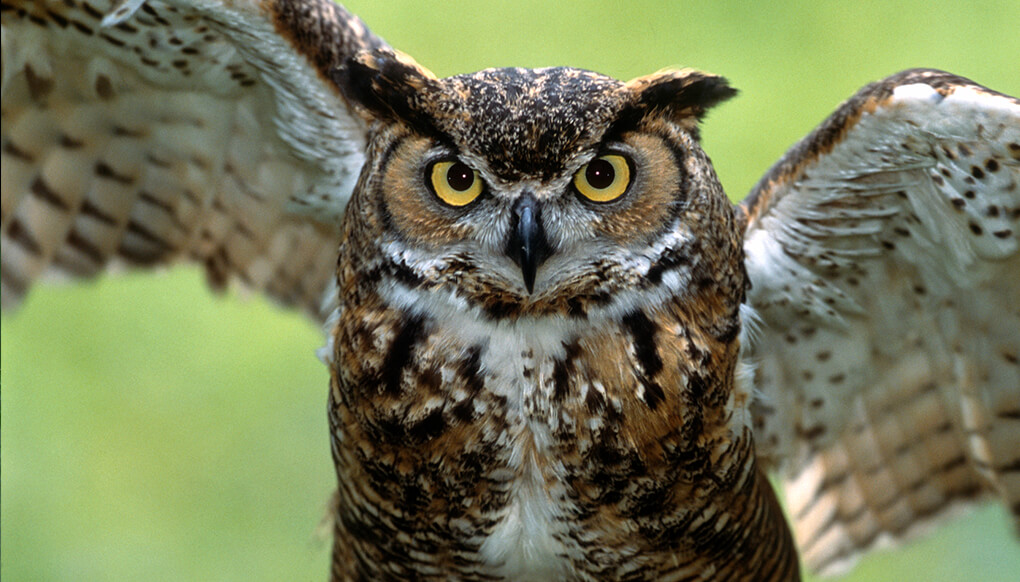
Great horned owl

Birds


Stable
facts

The great horned owl is a stealthy hunter. Its diet includes rabbits, skunks, woodchucks, mice, rats, squirrels, ducks, quail, geese, and fish.

The great horned owl lives in trees in many habitats. They can be found in mountains, grasslands, conifer forests, deserts, and chaparral.
description
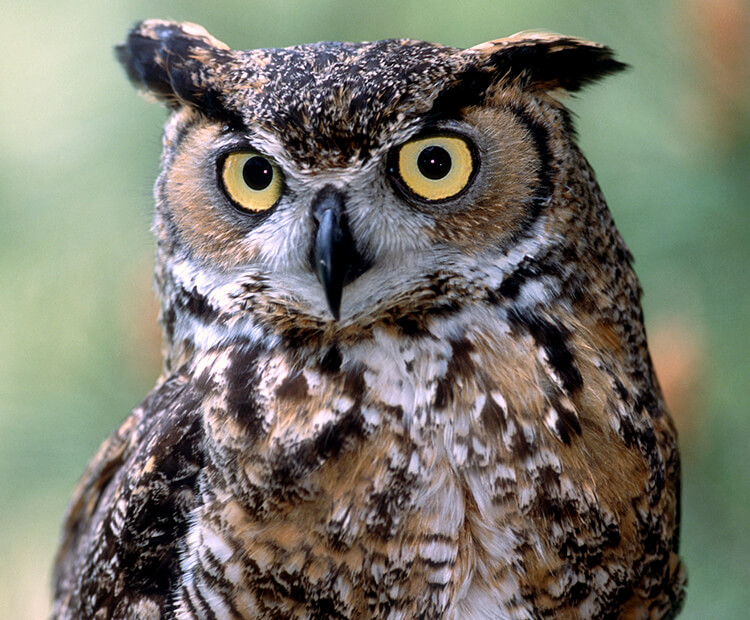
Horns? Or feathers?
The great horned owl gets its name from the tufts of feathers on its head that look like ears. But the owl's ears are really farther down on the side of its head, and are just openings in the skull hidden beneath feathers. Its large eyes let it see in almost complete darkness, and if there is no light at all, its excellent hearing helps it hunt by sound. Owls are stealth hunters; they can easily sneak up on their prey since their fluffy feathers give them almost silent flight. When it finds prey, it dives and snatches it with its long, sharp talons. Great horned owls are very strong and can carry animals several times heavier than themselves!
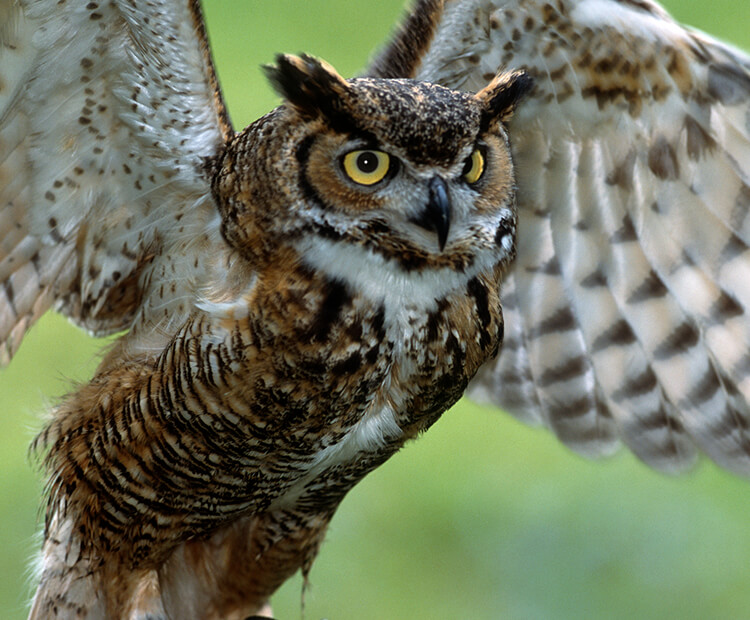
Excuse me!
Like other owls, these birds have an incredible digestive system. They sometimes swallow their prey whole and later regurgitate pellets packed with the bones, fur, and other unwanted parts of their meal. Because these owls are nocturnal, they can be difficult to spot. But listen carefully after sunset, or just before dawn, and you might be able to hear them calling "whoo-hoo." style
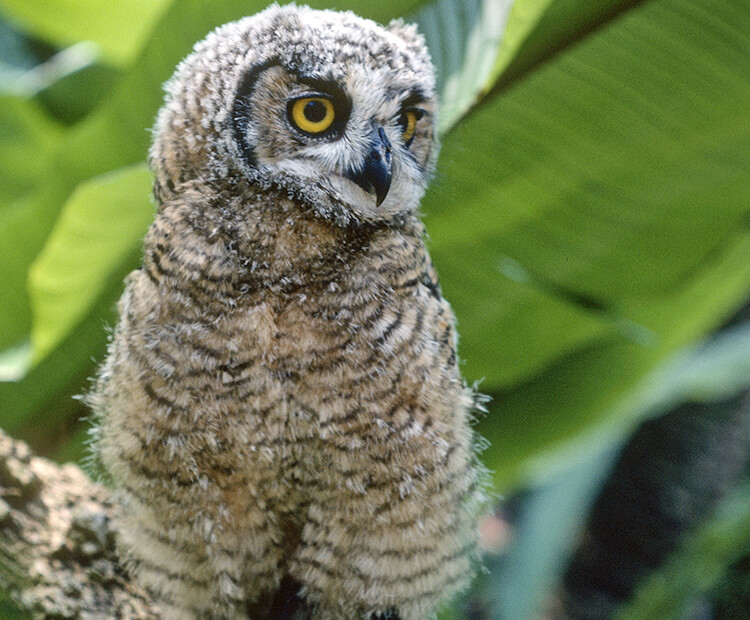
Protective parents
Great horned owls live in a range of habitats in places ranging from the Arctic to South America. They nest in tree holes, stumps, caves, or in nests left behind by other large birds. Both the male and female incubate the eggs, and the male also hunts for food. Owls are powerful birds and fiercely protective parents; they have even been known to attack humans who wander too close to their young.

